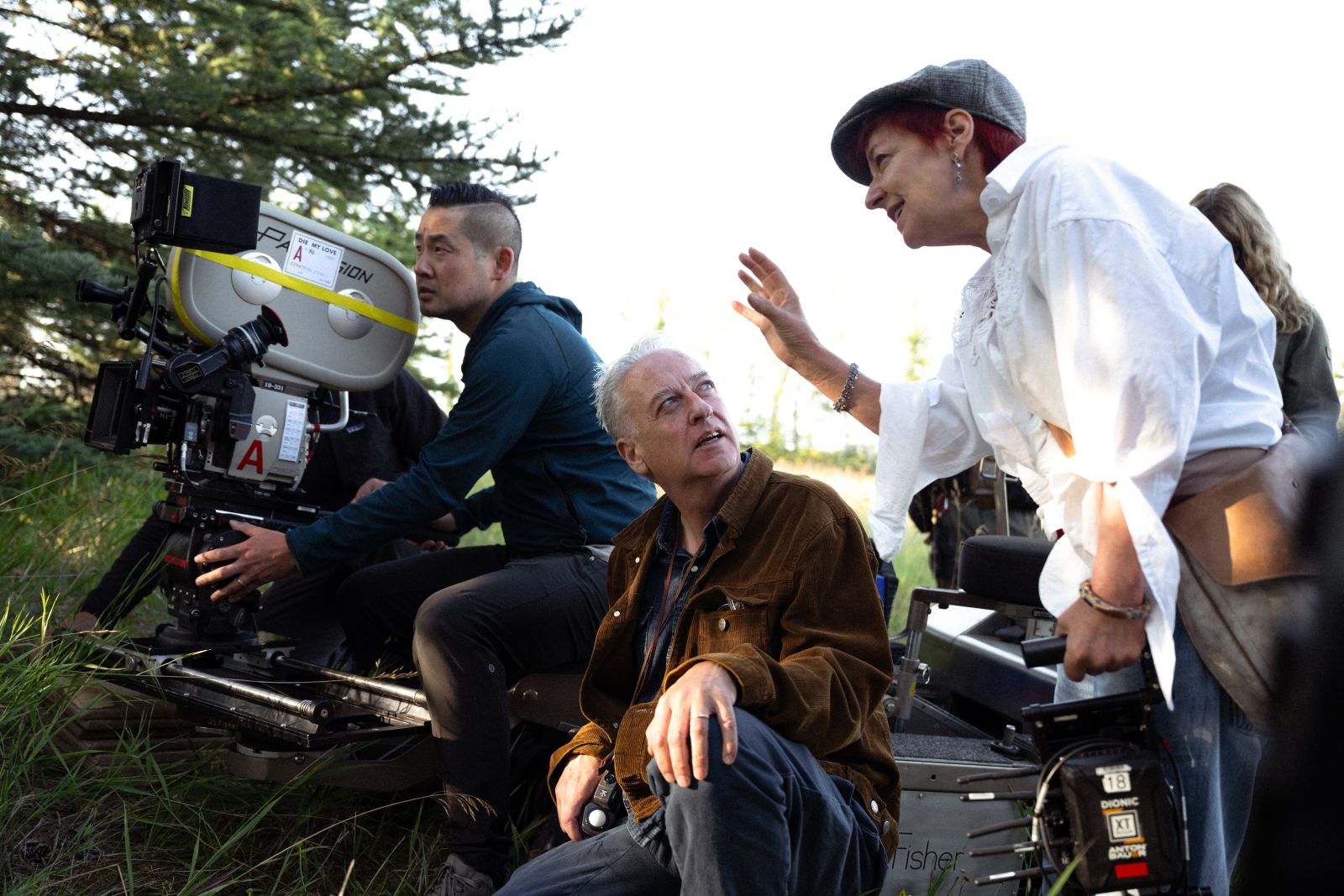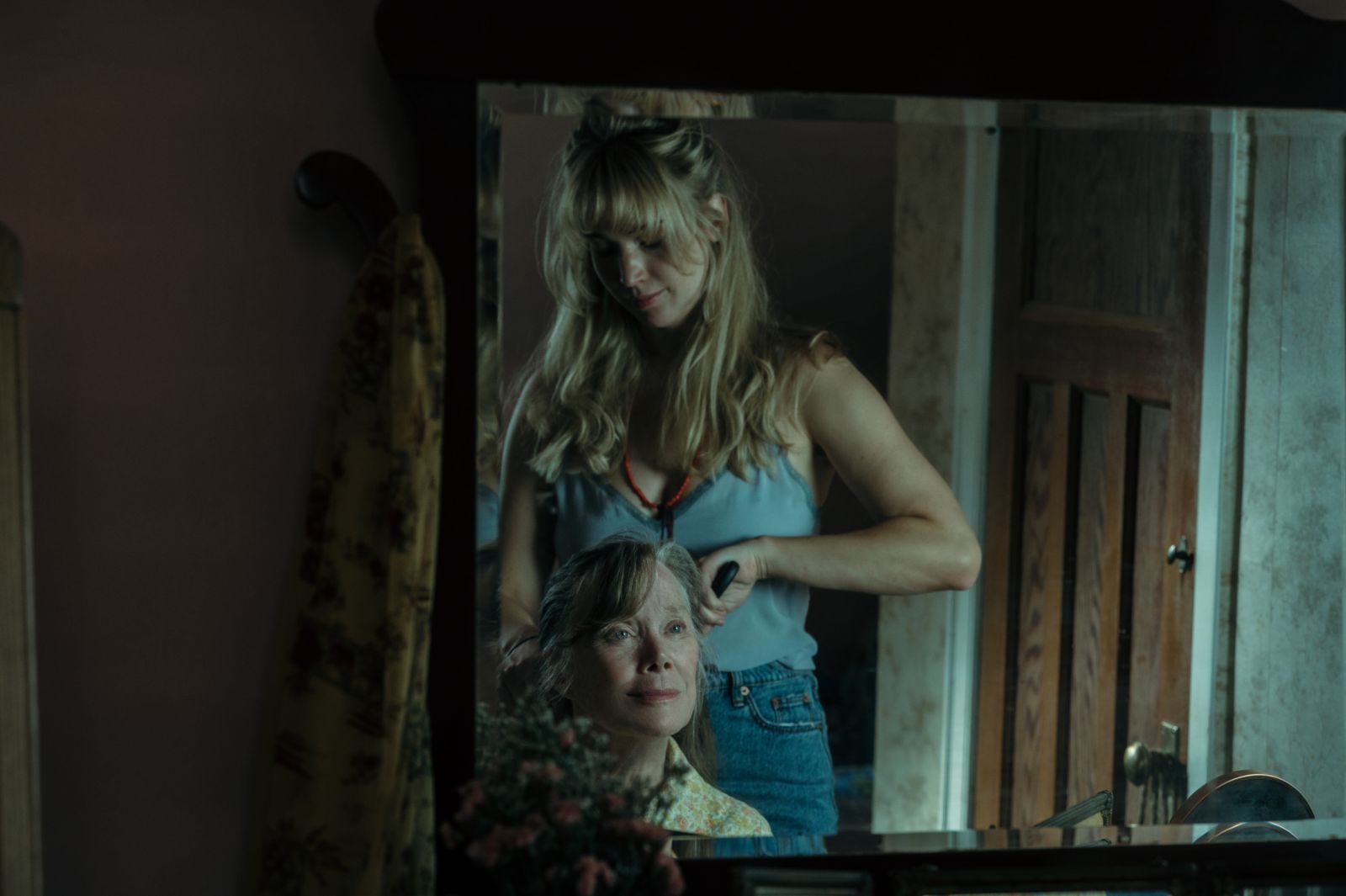Lynne Ramsay on Die My Love: 'Your whole identity goes into crisis'
After an eight-year hiatus, Lynne Ramsay is back with her fifth movie, the raucous Die My Love. As she tells James Mottram, its tale of a struggling new mother was all too close to home

It’s the back end of the London Film Festival when I meet Lynne Ramsay in the city’s Corinthia Hotel. Dressed in black, complemented by a bright orange blouse, she’s been awake since 4am, although it can hardly be out of concern for her new movie Die My Love. Samantha Morton, the star of Ramsay’s second film, 2002’s Morvern Callar, is introducing it later. And she’s got Jennifer Lawrence by her side too. The Oscar-winning actress sent her the source novel, by Ariana Harwicz, and alongside film icon Martin Scorsese, is a producer and driving force on the project.
Yet initially, the Glaswegian Ramsay was hesitant. ‘At first I thought it was maybe too close to We Need To Talk About Kevin,’ she says, referring to her 2011 adaptation of Lionel Shriver’s novel about a mother’s relationship with her psychopathic son. In truth, they’re not alike, although they’d make a cracking double bill. In Die My Love, Lawrence plays Grace, who moves with husband Jackson (Robert Pattinson) to his uncle’s home in rural Montana. Her passion for writing has dried up and after she gives birth, her mental state begins to deteriorate.
Ramsay, who has one daughter with musician Rory Stewart Kinnear, related to what Grace endures. ‘You feel a bit depleted,’ she insists. ‘You’re sleep-deprived and going absolutely nuts, because you have to wake up every three hours. Even your husband can feel like that; the two of us looked like zombies for about three months. It’s much more challenging than you think it’s going to be. You feel a bit down and like you’ve disappeared. Your whole identity goes into crisis.’
As Ramsay recalls, Lawrence herself was pregnant during filming. ‘I didn’t find out until three weeks before the shoot and I was like, “Are you sure about this?” But in a way, pregnancy isn’t a fragile state; you feel like a warrior. She was glowing, and I think all those happy hormones are good for playing a dark part. If you could bottle pregnancy, people would take it because you can feel so great. Some people don’t, but I felt amazing. And she obviously felt amazing. You could tell.’

A work about isolation, mental health and even writer’s block (which Ramsay has struggled with in the past), the writer-director is reluctant to label the movie as any one thing. ‘This isn’t a postpartum film,’ she states. ‘It’s more than that. It’s got many more layers. I saw it as a love story between this couple where he can’t understand her. She’s a wild animal; she’s going somewhere. He still loves her but he just doesn’t get her. She’s an anarchist, smashing the world up.’
Defined by a raucous energy, Die My Love even features Ramsay on vocals. Collaborating with the film’s music supervisor Raife Burchell and with guitarist George Vjestica (a long-term member of The Bad Seeds), she sings a version of Joy Division’s ‘Love Will Tear Us Apart’ over the end credits and on a punk-infused track ‘Zero’, which she also co-wrote. ‘I just recorded it on my phone. We were thinking about getting someone else to do it, maybe Jennifer and Robert as a duet, but then it just kind of stuck. People liked it. Personally, I can’t stand my voice!’
Still, it would be wrong to characterise Die My Love as dour. There’s humour in its bones. ‘I saw them as a Spencer Tracy/Katharine Hepburn couple,’ she says of Grace and Jackson. Ramsay, who grew up in a working-class family in Glasgow before leaving to study photography at Edinburgh’s Napier College and then cinematography at London’s National Film And Television School, was reminded of her parents. ‘They were always fighting, but then they’d start laughing in the middle of an argument and the kids would all be laughing, because it’s totally crazy. I wanted to have this mad humour in their arguments.’
When Ramsay was in the midst of finishing Die My Love, her mother passed away. She did manage to spend three days with her, returning to finish the film after she died. ‘She loved Hitchcock and she loved westerns. We’d watch Saturday matinees together. Even though they weren’t moviemakers or any of that, just simple people, her and my dad were really into film.’
Sadly, her mother didn’t live long enough to enjoy her daughter’s latest success. Lawrence has already gained stellar reviews for her performance as the fragile Grace (an Oscar nomination seems certain) and the film has been bought by streamer Mubi for a staggering $25m: ‘That kind of happened overnight,’ Ramsay reflects. ‘So, I was like, “Wow, ok”.’ It almost feels as though Ramsay has earned this after the trouble she’s experienced in the past; creative differences with films such as The Lovely Bones and Jane Got A Gun led to her walking away at the eleventh hour.
Then again, that uncompromising streak is part of what makes Ramsay the filmmaker she is, and she still harbours hopes of adapting Margaret Atwood’s 2014 tale Stone Mattress, set aboard a boat in the Arctic. She got close once before but was unhappy with the set-up. ‘It was a rush job, and there was no prep: it was a run-and-gun shoot,’ Ramsay sighs. She also wanted to film in Greenland, even scouting Disko Bay, but the more film-friendly Iceland was suggested. ‘I killed it, and sometimes I regret that. Maybe I should have just done it.’
With Julianne Moore currently attached, it may yet come back, but the 55-year-old knows how exhausting movie shoots can be. ‘I’m getting too old for it,’ she smiles, grimly. Ramsay has also written a script about a pioneering photographer who travels to Alaska in 1910 and falls in love with an Inuit girl (Joaquin Phoenix is set to star). ‘It’s the craziest thing I’ve ever written,’ she says. Radiohead’s Jonny Greenwood, who created the score for We Need To Talk About Kevin and her last film, 2017’s vigilante saga You Were Never Really Here (which was also lit up by Phoenix), told her that when he read it, he could ‘really feel the cold’.
Talking of inclement climates, what about Scotland? Would she like to come back and film here? ‘There is a project, actually, that I wrote a while ago,’ she says, revealing that it’s a ‘continuation’ of her debut 1999 feature Ratcatcher, which followed a young boy growing up in 1973 in a poor part of Glasgow. Over the 26-plus years she’s been making features, she’s learned one thing: ‘You’ve got to be pragmatic and determined. It’s frustrating, of course. But if you really want to make a film, you find a way.’
Die My Love is in cinemas from Friday 7 November; read our article on Jennifer Lawrence.